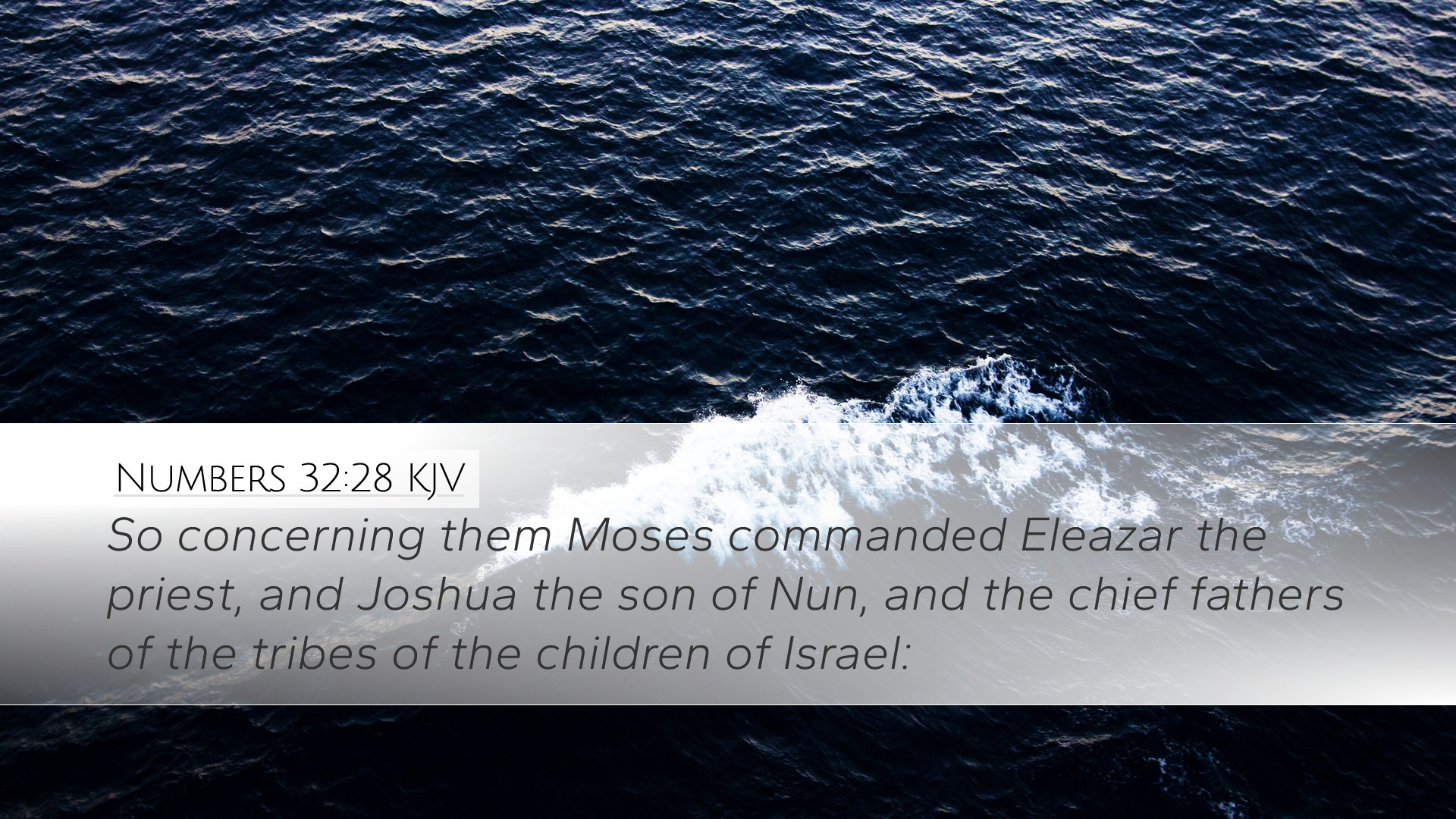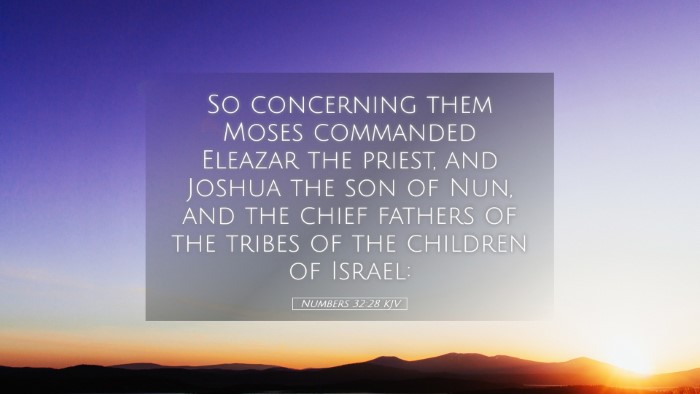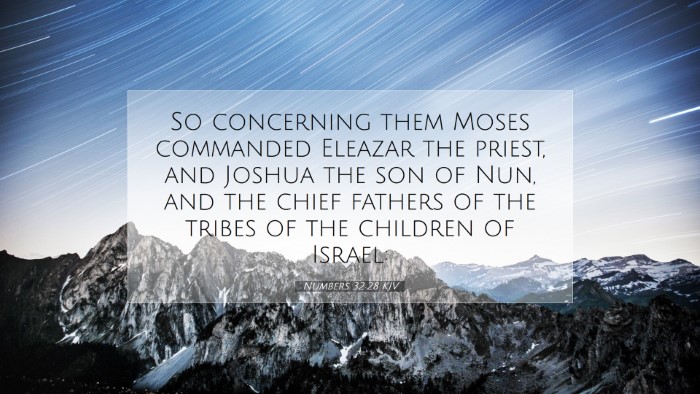Bible Commentary on Numbers 32:28
Verse Context: Numbers 32:28 states: "So Moses gave command concerning them to Eleazar the priest and to Joshua the son of Nun, and to the chief fathers of the tribes of the children of Israel." This verse occurs in the context of the tribes of Reuben and Gad requesting land on the east side of the Jordan, highlighting significant themes of leadership, obedience, and fulfillment of God's promises.
Interpretative Overview
Numbers 32:28 serves as a pivotal moment where Moses, the mediator of the covenant, communicates the decisions made regarding the arrangement of land for the tribes. This commentary integrates insights from Matthew Henry, Albert Barnes, and Adam Clarke, providing depth into the significance of this verse for pastoral and scholarly reflection.
Moses' Leadership and Faithfulness
Matthew Henry's Perspective: Henry emphasizes Moses' role as a faithful leader who takes great care in delegating responsibilities. He notes that Moses' command reflects a careful consideration of the spiritual and social implications of the tribes' request, thus underlining the importance of spiritual leadership in guiding God’s people.
Henry furthermore suggests that Moses serves not just as a lawgiver but also as a servant of God, illustrating that true leadership is manifested in obedience to divine instruction.
The Role of Eleazar and Joshua
Albert Barnes' Insight: Barnes points out that by including Eleazar the priest and Joshua, Moses highlights the necessity of collaborative leadership. Success in God’s mission relies on a shared vision and mutual accountability among leaders. Joshua, as the successor, symbolizes continuity in following God’s commands, while Eleazar represents spiritual guidance through the priesthood.
Barnes further argues that Moses intentionally involves these leaders to emphasize the spiritual dimension of the decision and ensure the next generation adheres to covenant responsibilities.
Tribal Leadership and Responsibilities
Adam Clarke's Analysis: Clarke draws attention to the phrase "the chief fathers of the tribes", indicating a structure of accountability and leadership that transcends individual interests. This suggests a community-oriented approach where familial and tribal responsibilities are paramount. Clarke notes that this arrangement demonstrates the importance of upholding the collective well-being over personal gain, echoing the New Testament principle of self-denial for the sake of others.
Clarke also underscores that this collective governance reflects God’s desire for His people to operate through consensus and shared responsibility, encouraging a spirit of unity within the community.
Theological Implications
The theological depth of Numbers 32:28 extends beyond its historical context, addressing essential themes pivotal for understanding God’s covenant with His people.
Obedience to God’s Will
The actions described in this verse show the significance of adhering to God’s will as collaboratively decreed by appointed leaders. Moses' careful consideration before delegating authority serves as a reminder for contemporary church governance. There is a strong emphasis on obeying God, which requires both faithful leadership and the willingness of the followers to submit to divine decrees.
Legacy of Leadership
This verse also comments on the nature of legacy within leadership. Moses, as a mentor, outlines the significance of preparing the next generation to carry on the covenantal history. The connection between Joshua and Moses illustrates how effective mentoring produces leaders who can continue God’s mission, even in new contexts.
Community Accountability
Numbers 32:28 exemplifies community accountability and participatory leadership. Each tribe's leaders must recognize their collective duty towards maintaining the covenant relationship with God. It underlines the principle that spiritual authority is not a mere hierarchical structure but a network of mutual responsibility and support, integral for flourishing under God's covenant.
Pastoral Applications
The implications for pastoral ministry from this text are profound:
- Servant Leadership: Pastors must posture themselves as servants first—exemplifying humility and faithful service to their congregations.
- Collaborative Ministry: Encouraging shared leadership within the church fosters a sense of community and shared ownership in ministry.
- Discipleship: Investing in the next generation of leaders is vital, emphasizing a mentoring role akin to that of Moses to Joshua.
- Spiritual Accountability: Emphasizing collective responsibility ensures that the church remains aligned with God’s purposes.
Conclusion
Numbers 32:28 encapsulates crucial lessons on leadership, community, and obedience to God’s covenant. Through the insights of historical commentators, we derive principles that resonate deeply with contemporary faith practice, highlighting the ever-relevant call to faithful service and mutual accountability within the body of Christ. This verse not only speaks to the leaders of Israel but extends its application to the hearts of pastors, students, theologians, and scholars today.


